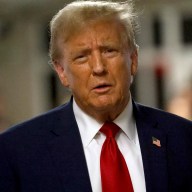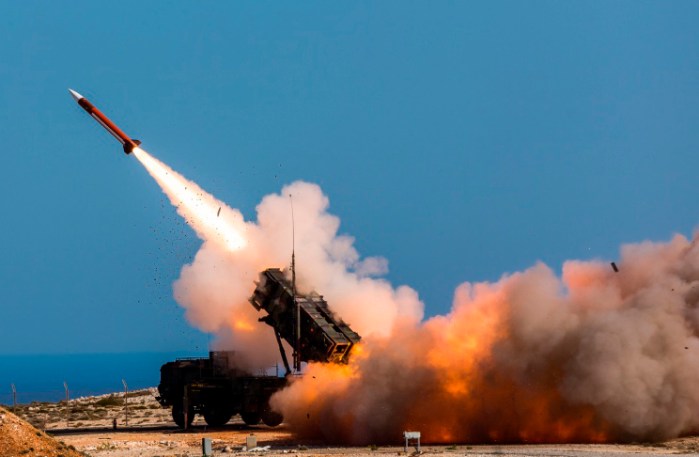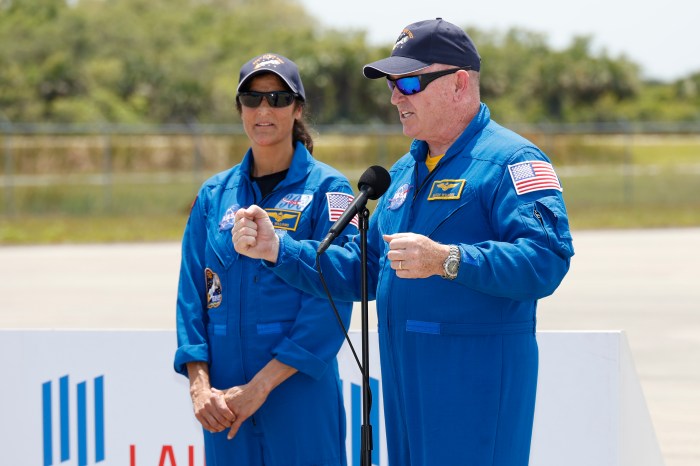WASHINGTON – The leader of the world’s one billion Roman Catholics has been to the White House only once in history – but that will change this week.
U.S. President George W. Bush is pulling out all the stops: driving out to a suburban military base to meet Pope Benedict XVI’s plane, bringing a giant audience to the South Lawn and hosting a fancy East Room dinner.
These are all firsts.
Bush has never before given a visiting leader the honour of picking him up at the airport. In fact, no president has done so at Andrews Air Force Base, the typical landing spot for modern leaders.
A crowd of up to 12,000 is due at the White House on Wednesday morning for the Pope’s official, pomp-filled arrival ceremony.
It will feature the U.S. and Holy See anthems, a 21-gun salute, and the U.S. Army Old Guard Fife and Drum Corps. Both men will make remarks before their Oval Office meeting and a send-off for his popemobile down Pennsylvania Avenue.
The White House crowd will be the largest of Bush’s presidency. It even beats the audience last spring for the Queen, which numbered about 7,000.
The evening festivities will mark the first time the Bushes have put on a high-profile meal in honour of someone who isn’t even a guest. Wednesday is the pontiff’s 81st birthday, and the menu celebrates his German heritage with Bavarian-style food.
But Benedict’s prayer service that evening with U.S. bishops at a famed Washington basilica preclude him from coming to the dinner. Catholic leaders will be there instead.
The president explained the special treatment – particularly the airport greeting.
“One, he speaks for millions. Two, he doesn’t come as a politician; he comes as a man of faith,” Bush told the EWTN Global Catholic Network in an interview aired Friday. He added that he wanted to honour Benedict’s conviction that “there’s right and wrong in life, that moral relativism has a danger of undermining the capacity to have more hopeful and free societies.”
The Bush-Benedict get-together will be the 25th meeting between a pope and a sitting U.S. president.
The first did not come until shortly after the end of the First World War, when Woodrow Wilson was received at the Vatican by Pope Benedict XV in 1919. The next wasn’t for 40 more years, when President Dwight Eisenhower saw Pope John XXIII in Rome.
Since then, such audiences have become a must-do. Every president has met with the pope at least once, often more. This week makes Bush the record-holder, with a total of five meetings with two popes.
There are more than 64 million reasons for this. Catholics number nearly one-quarter of the U.S. population, making them a desirable constituency for politicians to court.
“The pope represents not just the Catholic Church but the possibility of moral argument in world affairs and it is very important for American presidents to rub up against that from time to time,” said George Weigel, a Catholic theologian and biographer of Pope John Paul II.
The Vatican – seat of a government as well as a religious headquarters – has an interest, too.
“It wants to be a player in world affairs, and everyone understands that to do that you have to be in conversation with the United States,” said John Allen, the Vatican correspondent for the independent National Catholic Reporter.
On social issues such as abortion, gay marriage and stem cell research, Bush and Benedict have plenty of common ground.
But they disagree over the war in Iraq, just as Bush did with Benedict’s predecessor, John Paul.
When Benedict was a cardinal before the 2003 invasion, the now-pontiff categorically dismissed the idea that a preventive strike against Iraq could be justified under Catholic doctrine. In his Easter message last year, Benedict said “nothing positive comes from Iraq.”
Benedict told Bush at their first meeting last summer at the Vatican that he was concerned about “the worrisome situation in Iraq.” Bush characterized the pontiff’s concerns as mostly limited to the treatment of the Christian minority in Muslim-majority Iraq. The statement out of the Vatican suggested a broader discussion.
Weigel predicted talks this time would be focused almost entirely there.


















